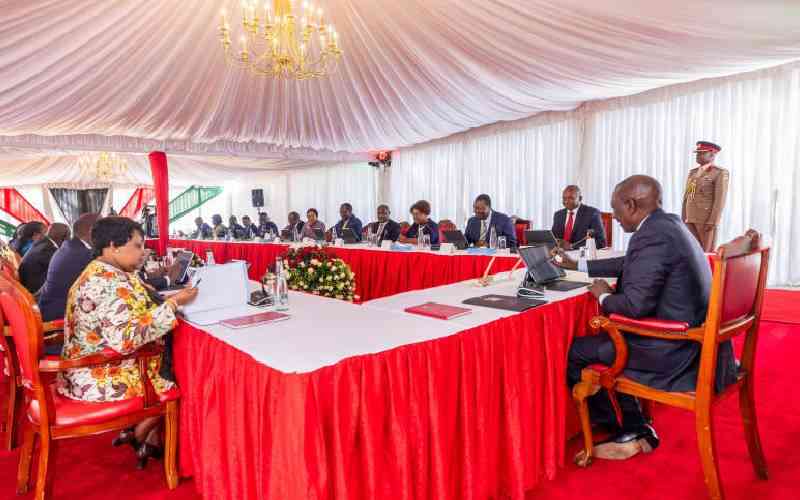Fear of job cuts has gripped the education sector after the government announced a plan to merge and shut some institutions.
The plan is part of changes proposed by the Cabinet on Tuesday evening as part of government plans to streamline operations by merging and closing institutions with overlapping mandates.
The government’s plan will see 42 institutions with overlapping functions folded into 20. Additionally, 16 outdated institutions will be closed, with their mandates handed over to the private sector.
Nine other institutions will have their responsibilities transferred to relevant ministries. The proposed changes now seek to merge the University Funding Board (UFB) and the Higher Education Loans Board (HELB) into one entity, amid a university funding crisis that has seen the institutions go five months without funding.
The two institutions are among 42 the government has earmarked to have overlapping mandates and will now be reduced to 20.
HELB and UFB are responsible for funding students in universities; the former offering loans to the students and UFB offering scholarships under the new funding model and grants under the Differentiated Unit Cost or the old funding model.
Also proposed is the merger of the Commission for University, Kenya National Qualification Authority (KNQA) and Technical and Vocational Education Training Authority (TVETA) will also be merged into a single entity.
These will form a single regulatory body overseeing higher education, technical training, and qualifications. This means student funding will be drawn from one pool.
However, the changes by Cabinet have seen some stakeholders develop cold feet as they fear job losses and layoffs.
Commission for University Education (CUE) chairman Chacha Nyaigoti argues that the process might lead to right-sizing or downsizing which could see job losses in the institutions.
He noted that the review and restructure of institutions is normal practice to align organisations with current needs. “Historically, major corporations and companies have had to downsize, or right size, it is important that a working system gets reviewed from time to time for purposes of ensuring the functions are undertaken effectively and efficiently,” Nyaigoti told The Standard.
University and Academic Staff Union (UASU) organising secretary, Onsesmus Maluki warned that the job losses are real in the case of a merger.
However, Maluki said he hopes the proposed merger, specifically for the UFB and HELB, will iron out the funding challenges facing universities.
“We hope that the proposed merger will not disadvantage universities, we hope that the two institutions(UFB and CUE) being under one roof will enhance efficacy and moving forward we will see timely disbursement of funds and that they will be able to deal with the issue of underfunding,” Maluki said on phone.
Further radical changes will see the dissolution of the Centre for Mathematics, Science, Technology, Education in Africa (CEMASTEA), the Kenya National Commission for UNESCO and the National Council for Nomadic Education to make them departments under the ministry of education.
Institutions such as the Jomo Kenyatta Foundation (JKF) and the School Equipment Production Unit (SEPU) are also slated for closure, having been deemed outdated.
Professional bodies such as the Nursing Council of Kenya will be delisted as state corporations, with the government ceasing their public funding.
Daniel Mugendi, the Vice Chancellor’s Committee chairman called on the government to regulate the professional bodies to protect universities from increase in cost of mounting programmes and annual fees the institutions pay to the regulatory bodies.
“Cutting funding to the institutions might have the ripple effect forcing this institutions to increase fees for the institutions to cater for the shortfall, universities and even colleges must be protected from this,” Mugendi said.
The merger of UFB and HELB mirrors a recommendation by the Presidential Working Party on Education Reforms, which proposed creating a unified Tertiary Education Placement and Funding Board. By Lewis Nyaundi, The Standard






